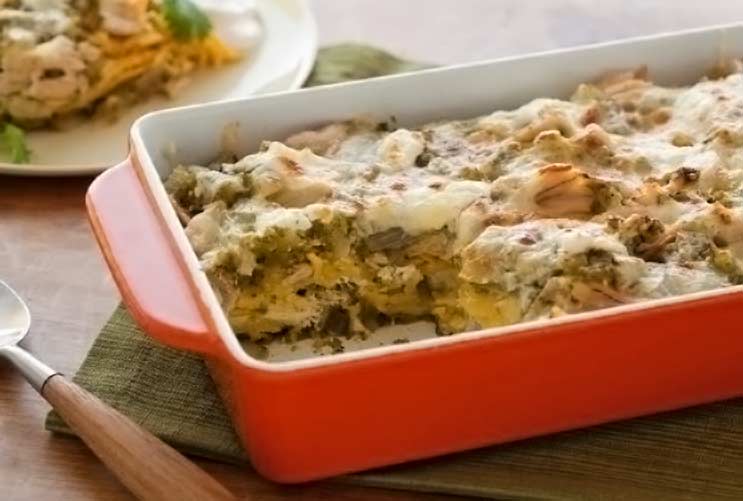
You’ve heard of spring cleaning—it’s that dreaded time of year when you self-impose a massive purge session of all your old clothes that need to be retired. So now your closet is organized and up-to-date, but what about refrigerator cleaning? Dare we even look at your condiment shelf? Confession time—I just found a jar of mustard that expired the month my son was born. He’s turning 4-years-old next month. And I’m not a hoarder, I swear! I just never, ever, clean my fridge. But in honor of Clean Your Fridge Day on November 15th, we’re going to do this together.
However this day came to be is irrelevant. What matters is it’s here, and now you have no excuse. It’s time to dig through your food stash, get organized and protect your family from the food poisoning and germs hiding in your refrigerator. According to Catherine Collins of the British Dietetic Association, “Not storing food properly and overlooking cleanliness can lead to a high risk of food poisoning. Being aware of fridge hygiene will help raise the quality of food and also stop you from getting sick.” Let’s get started. Here’s a quick list of 15 tips on fridge cleaning that you need to know now. Break out the garbage bags, we have a feeling you’ll be needing them.
1. Hard Cheese • Over 6 Months
Harder cheeses typically have lower moisture content and can last for longer in your refrigerator than soft cheese. Hard cheeses such as Parmesan or Pecorino can last for a solid six months to a year once opened (maybe even a bit longer depending on how they are stored), while semi-hard cheeses like Gouda or Cheddar should be tossed after six months. Note: wrap hard cheese in plastic wrap or parchment paper to ensure proper storage.
Read Related: 14 Things Every Mom Must Know About Keeping a Clean Kitchen
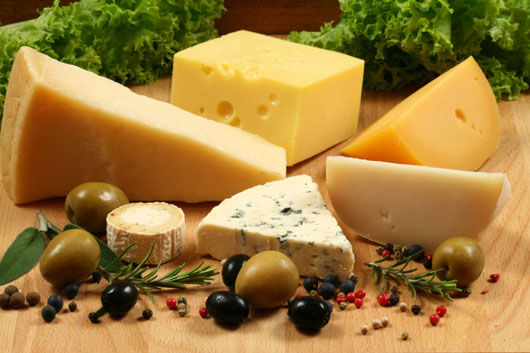
2. Soft Cheese (opened) • 1-2 Weeks
Soft cheeses don’t last as long once they are opened, so next time you have leftover Brie from a cocktail party, think twice before you snack on it weeks later. It’s really only safe to eat for one to two weeks maximum.

3. Butter • 1-3 Months
If you’re the type to buy butter in bulk, assuming you’ll need it for cooking or baking, then you might want to cut back on your stock. Butter can last for one to three months in your fridge but after that point (or the expiration date) it needs to be dumped.
4. Olives & Pickles • 4-6 Months
When it comes to refrigerator cleaning, as long as you store and handle pickled products properly, these types of food items can last for four to six months—some argue even a year. That said, typically olives and pickles will start to taste icky or have a strange consistency when they are ready for the trash. Trust your taste buds.
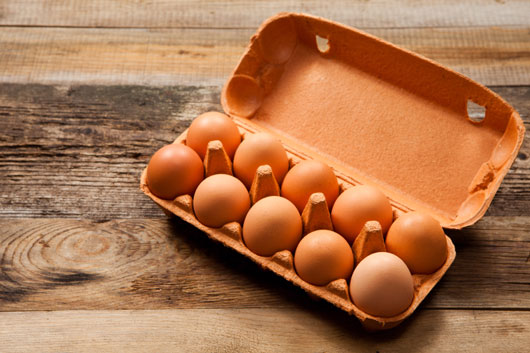
5. Fresh Eggs • 3-5 Weeks
You can go by the expiration date on the package if it makes you feel better, or you can use the rule of thumb that eggs (in their shell) must be thrown away after three to five weeks. We like to play it extra safe with eggs since we’re terrified of food poisoning and salmonella.
6. Uncooked Steaks & Roasts • 3-5 Days
It’s not always easy to buy your meat the day you plan to cook it unless you have endless amounts of free time to shuffle back and forth to the grocery store (we do not). But when planning your weekly menu try to only buy meat three to five days before you plan to cook it, or else it may go bad and need to be thrown away before you can enjoy it.
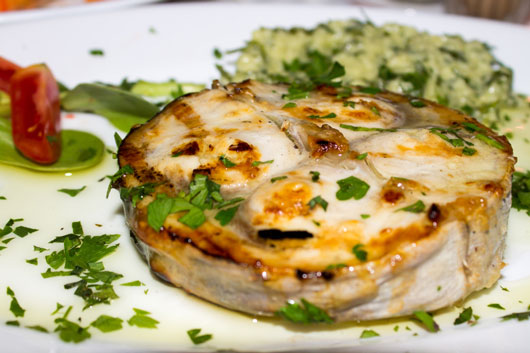
7. Fish (cooked) • 3-4 Days
Leftover is our middle name. We tend to cook more food than we can eat and have leftovers to serve for a few days. But when it comes to fish, it should only be served for three to four days. After that it needs to find a new home in your garbage can.
8. Mashed Potatoes • 3-4 Days
Thanksgiving leftovers are the BEST. But only for a few days, after that they are gross and possibly dangerous to eat. Even those creamy mashed potatoes you dream about, serve them for three to four days after turkey day and then say goodbye.
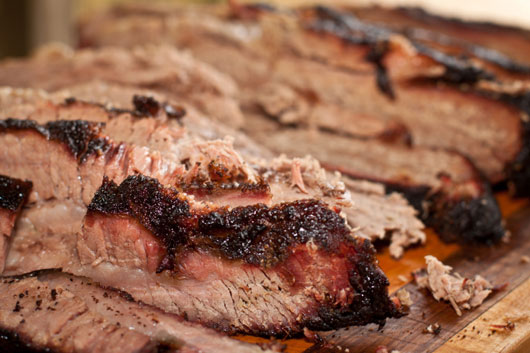
9. Meat (cooked) • 3-4 Days
This is crucial for fridge cleaning. Similar to cooked fish, even if it still smells and looks delicious, three to four days is the limit for enjoying that tasty steak dinner you prepared.
10. Poultry (cooked) • 3-4 Days
Is it us, or does roast chicken just seem to taste better the next day? And that’s totally fine, but a couple days after that and things start to get gross. And remember, if your leftover poultry has a strange smell then do not even think about taking a bite. The possible food poisoning is not worth it, we promise!

11. Soups & Stews • 2-4 Days
Soups are a food that are typically made in bulk (we love you, crock pot), and therefore have a comfy home in our refrigerator in the form of leftovers. But even though it seems like that extra soup could feed your family for weeks, it should only be kept for two to four days depending on the contents.
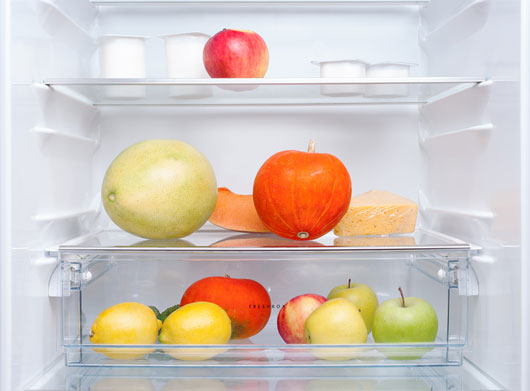
12. Fruit or Pumpkin Pies • 2-3 Days
Pies (and most other baked goods) start to lose their flavor and texture after a few days, which is a sign that they shouldn’t be consumed after two to three days of being baked. That is, unless they are frozen and thawed, which is a whole different ballgame.
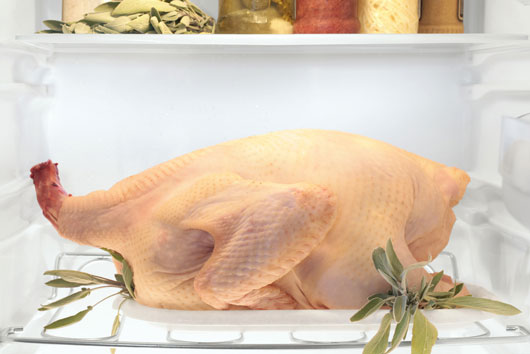
13. Poultry (uncooked) • 1-2 Days
Some foods we are a little more willing to bend the rules on (vegetables, packaged goods, baked goods) when it comes to freshness. But with poultry we do not mess around. After one or two days fresh chicken or turkey should be tossed to the curb.
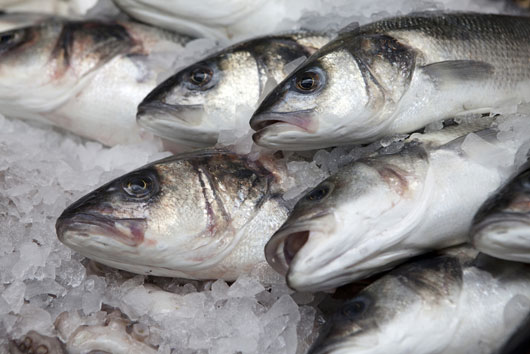
14. Fish (uncooked) • 1-2 Days
If fish or seafood is truly fresh then it should smell mild, never fishy. The moment your fish starts to stink or show discoloration it needs to be thrown away, typically one to two days after it is purchased (assuming it is fresh when you take it home from the market).
15. Re-corked White Wine • 1-2 Days
This one is stressing us out. We have this nasty habit of popping open a bottle of wine with the excuse that we will drink it over the next few days. Legit, right? Well apparently you are supposed to toss re-corked wine after one or two days max. Which means we will probably be wasting a lot more wine than we would like. It pains us to say those words.





